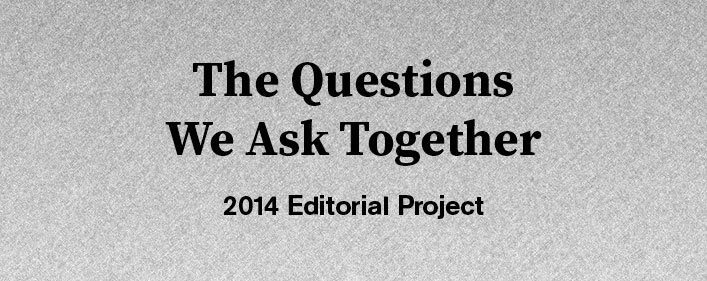How do you reconcile values that are different between you, your collaborators and the work’s public or audience?
This question doesn’t mean much without an example. Here’s one.
Right now in Australia, a whole bunch of people are putting their heads together anxiously, and asking exactly this question about the Sydney Biennale.
Recently it came to light that the Biennale’s major corporate sponsor, Transfield, has taken a contract to provide services to Australia’s offshore immigration detention centres.
Background info: for several years now, the Australian government’s “asylum seeker” policy has hinged on an ingenious legal sleight of hand. Refugees on leaky boats are intercepted by the navy and taken to makeshift detention centres on remote islands. Since these islands are not on the Australian mainland, it is much easier to deny their claims for refugee status and refuse them asylum in our country. People can languish in misery for months and years in these ad-hoc prisons.
It doesn’t take much imagination to follow the flow. Money paid by the government to Transfield for running detention centres filters through to the philanthropic Transfield Foundation, making its way into the hands of the Sydney Biennale, helping to generate one of our largest cultural festivals.
Intense discussion is underway. Should the artists who are due to exhibit at the Biennale next month withdraw their participation? Should educators refuse to bring their students on excursions to see the exhibition? Can the Biennale be convinced to cut ties with Transfield? What course of action would be most strategic?
Some of the artists I’ve spoken to––who identify as being practitioners of “socially engaged art”––are torn. They’ve been working on their projects for months, sometimes years, leading up to this event. Many are working with multiple stakeholders or in communities where considerable momentum has built. To put it mildly, boycotting the Biennale means stuffing a lot of people around.
Also––it goes without saying, an invitation to exhibit the Biennale is a significant career opportunity.
And for educators, a field trip to the Biennale can keep students’ heads spinning for months afterwards. It’s an incredibly valuable pedagogical experience.
It’s a familiar tension here: the “good” that a first world product generates versus the third world “bad” that lies beneath it. Chocolate, iPhone manufacturing, etc etc. The art world lives in an insulated bubble, taking care to say the right things, but rarely having to weigh up different values in a way that impacts our own lives.
How much of our careers and lifestyles would we be prepared to sacrifice for a clear improvement in social justice?
What’s the point of socially engaged art if it’s propped up by socially disengaged money?
Will taking a stand even make a difference?
In the end, the Transfield-Biennale connection is incidental. The key thing is that immigration detention centres actually do exist––and have existed for a long time––punishing people for fleeing awful circumstances. The fact that the artworld is feeling protracted angst over this matter is a gift––a rare opportunity to feel a small fraction of what it must be like for a refugee family to weigh up staying versus leaving.
That’s the beginning of a reconciliation of different values.
More information about the Biennale/Transfield issue. Image sourced from Brynn O’Brien.
About the contributor: Lucas Ihlein is an artist who works with social relations and communication as the primary media of his creative practice. His work takes the form of blogs, participatory performances, pedagogical projects, experimental film and video, re-enactments, gallery installations, academic research, writing, and lithographic prints & drawings. Ihlein’s projects explore subjects as diverse as agriculture, gardening and social ecology, everyday life, avant-garde cinema history, fan culture, urban planning, communication and social relations. He currently collaborates with the artist groups Big Fag Press, and Teaching and Learning Cinema. He is also a founding member of SquatSpace and NUCA (Network of UnCollectable Artists). In 2009 he completed a practice-based research PhD at Deakin University entitled “Framing Everyday Experience: Blogging as Art”, which won the Alfred Deakin Medal for best Doctoral Thesis in Humanities and Social Sciences.
Lucas teaches Media Arts and Visual Arts at University of Wollongong, Australia. lucasihlein.net
